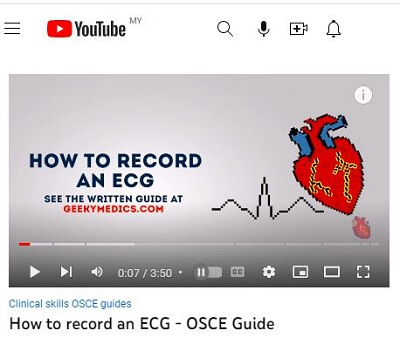Thank you for reading this article. My name is Will and I am from Kuala Lumpur, Malaysia.

I am an active person and I love tools, garment, equipment and technology which can help to improve sports performance.
Recently, I have been learning a lot on the Enhanced external counterpulsation (EECP) treatment.
I am fascinated with non-invasive procedure which can help to improve our body blood circulation and EECP treatment definitely fit the bill.
What triggered my interest on EECP?
I got interested on EECP after reading an article published on the Department of Statistics Malaysia website.
According to the Department of Statistics Malaysia, Ischemic heart disease continued to be the leading cause of mortality, accounting for 17.0% of the 109,155 deaths that were medically verified in 2020 (Statistics, 2021).
Yes, heart disease is the #1 killer in Malaysia.
Is heart disease curable?
According to Cardiac Vascular Sentral Kuala Lumpur (CVSKL) website:
“Heart disease is NOT CURABLE. However, it is preventable and treatable with current medical advancements.”
One of such treatment or procedure is EECP.
However, before knowing if EECP treatment is suitable for a person with heart disease, he or she has to do an ECG test.
What is ECG test and what can the test detect?
As per NHS UK website:
“An electrocardiogram (ECG) is a simple test that can be used to check your heart’s rhythm and electrical activity.”
What can you expect when going through an ECG test?
During the test, sensors will be attached to your skin.
The sensors are used to detect the electrical signals produced by your heart each time it beats.
These signals are recorded by a machine and are looked at by a doctor to see if they’re unusual.
Who can carry out the ECG test?
The test can be carried out by a specially trained healthcare professional at a hospital, a clinic or at your GP surgery.
What can ECG test detect?
An ECG is often used alongside other tests to help diagnose and monitor conditions affecting the heart.
It can be used to investigate symptoms of a possible heart problem, such as chest pain, palpitations (suddenly noticeable heartbeats), dizziness and shortness of breath.
An ECG can help detect:
- Arrhythmias – where the heart beats too slowly, too quickly, or irregularly.
- Coronary heart disease where the heart’s blood supply is blocked or interrupted by a build-up of fatty substances.
- Heart attacks – where the supply of blood to the heart is suddenly blocked.
- Cardiomyopathy – where the heart walls become thickened or enlarged.
A series of ECGs can also be taken over time to monitor a person already diagnosed with a heart condition or taking medication known to potentially affect the heart.
How ECG test is carried out?
There are several different ways an ECG can be carried out.
Generally, the test involves attaching a number of small, sticky sensors called electrodes to your arms, legs and chest.
These are connected by wires to an ECG recording machine.
The test itself usually only lasts a few minutes, and you should be able to go home soon afterwards
You have reached the end of my article.
Before you go, please take some time to read the disclaimer page on this blog.
The content on this blog is for information and educational purposes only.
What worked for others may or may not work for you.
Please do your own further research in order to get the answer you are looking for.


Leave A Comment